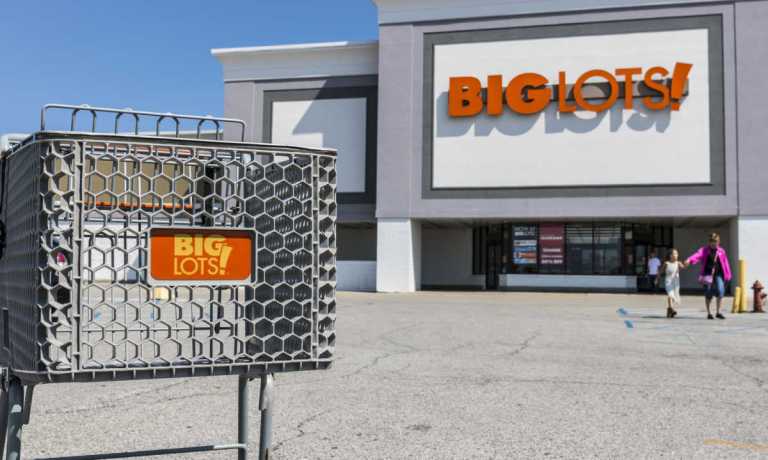Big Lots Plans Small-Town Shift Amid Big-Ticket Slump

Big Lots said it’s shifting away from big-ticket items and toward small-town locations.
The strategic change comes as the Ohio-based operator of 1,450 off-priced stores saw its third-quarter comp sales drop 11.7% as inflation and economic concerns continue to crimp low-end consumer spending.
“The low-income customers whom we serve have felt the most pain and most are living paycheck to paycheck and racking up more debt,” Big Lots CEO Bruce Thorn told investors Thursday (Dec. 1) on the company’s earnings call, as the retailer’s stock was slumping 10% on the news, extending a nearly 60% year to date decline.
While Thorn said he was not happy with the current results and that the company needed to do better “as we punch our way through these tough economic times,” he also noted that the current environment was an opportunity to strengthen the retailer’s business model and create a better, more omnichannel shopping experience that was focused on low-priced deals in rural markets where it faces less competition.
“We will own bargains and treasures,” Thorn told investors. “Our company was built on providing phenomenal value, and we’re leaning into it in a much bigger way,” he added, noting that by the end of 2023 Big Lots’ assortment would be two-thirds bargains and treasures, including 90% of in-store end caps, up from the 40% range today.
“We will increasingly focus on rural and small-town markets where we know we outperform with our strong assortment of furniture and home goods while taking a prudent near-term approach to opening stores,” Thorn added, noting the addition of a new chief merchandising officer and a new chief marketing officer to guide the transformation.
“As we think about our real estate strategy in store openings and closings in the future, we see an opportunity to reshape our store portfolio more toward these rural and small-town markets with an emphasis on furniture and home goods,” he said.
The Digital Challenge
Like all retailers, Big Lots is also looking to grow its online sales, a channel that is typically challenging for off-price labels that tend to buy reduced price inventory as it becomes available.
At the same time, the company noted that the addition of digital payment options, such as PayPal and Apple Pay, have reduced checkout friction and improved the customer experience, while improved inventory accuracy has made it easier for customers to find what they’re looking for at a nearby store.
Together, these efforts have bolstered 12% year-to-date eCommerce sales growth which Thorn said now represents 7% of Big Lots’ business compared to 2% three years ago.
Lastly, the company said it has cut about 1700 unproductive SKUs.
“As an example, we carried six lines of Neosporin and we now carry one,” Thorn said, noting seasonal products will be sold only in peak season rather than year-round.
“By reducing unproductive and duplicate SKUs we’re able to offer [customers] a more compelling and productive shopping experience and it also creates more room for more bargains,” he added.
For all PYMNTS retail coverage, subscribe to the daily Retail Newsletter.